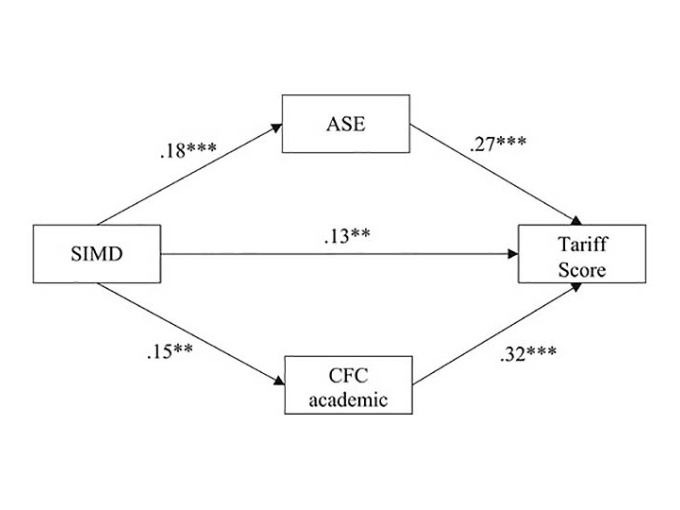Thinking differently about the future can mitigate some socioeconomic disadvantage in school

An unfortunate but well-established fact is that academic attainment is significantly predicted by socio-economic status. Put simply, if someone is from a deprived background, they are less likely to do well in education (and beyond).
Clearly, the most welcome solutions to this problem are political. However, I am not, nor will I ever be a politician. I am a psychologist, so I have been examining the psychological determinants of this relationship.
In 2017, I published a paper with Martin Dempster and Michael Mckay on the role of self-efficacy to mitigate this problem. You can read this paper here. I also wrote a blog about it, which you can read here.
In that paper, we found that academic self-efficacy, that is, confidence in one’s own academic ability, partially mediated this relationship between deprivation and academic attainment. In other words, deprivation still leads to worse performance in school, but less so if they have confidence. That finding provides a glimmer of hope.
Working with Dr Michael McKay (Royal College of Surgeons in Ireland), Prof. Frank Worrell (University of California, Berkeley), and Prof. Jon Cole (University of Liverpool), we have just published a further paper to determine the impact of consideration of future consequences on this relationship.
Using a sample of 451 school children in Glasgow, we first sought to replicate what we had found previously - deprivation had a negative impact on academic attainment, and this was reduced when academic self-efficacy was higher. This time, we also included a measure of domain-specific consideration of future consequences, using a measure published by McKay, Perry, Cole, and McGhee (2017) with further evidence of it’s value in education published by McKay, Perry, and Cole (2018).
We found that consideration of future consequences (academic) further mitigated the impact of deprivation on attainment. The image at the bottom of this post demonstrates this. When we consider academic self-efficacy (ASE) and consideration of future consequences (academic; CFC academic), these are stronger predictors of attainment (tariff score) that social deprivation (SIMD).
So what does this mean?
While we cannot eradicate the impact of social deprivation on academic attainment, we can mitigate for it. Strategies that seek to boost self-efficacy and strategies that encourage school children to engage in more future thinking regarding their education appear to have a positive impact.
You can access the full paper (with a subscription - sorry!) by clicking on the reference here:
By Dr John Perry, Head of Department of Psychology, MIC
 Deprivation, academic self-efficacy, considerations of academic future consequences, and attainment.
Deprivation, academic self-efficacy, considerations of academic future consequences, and attainment.



